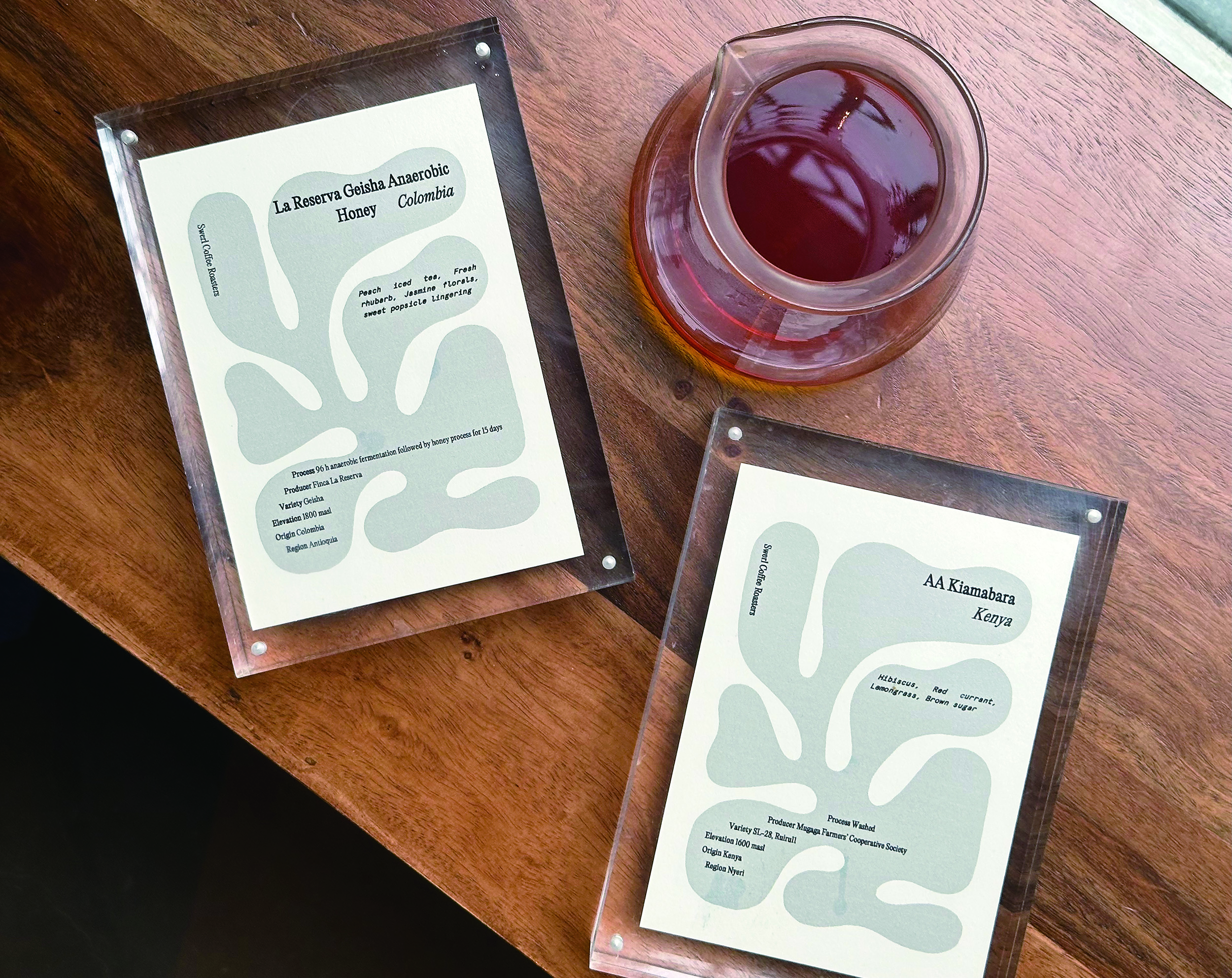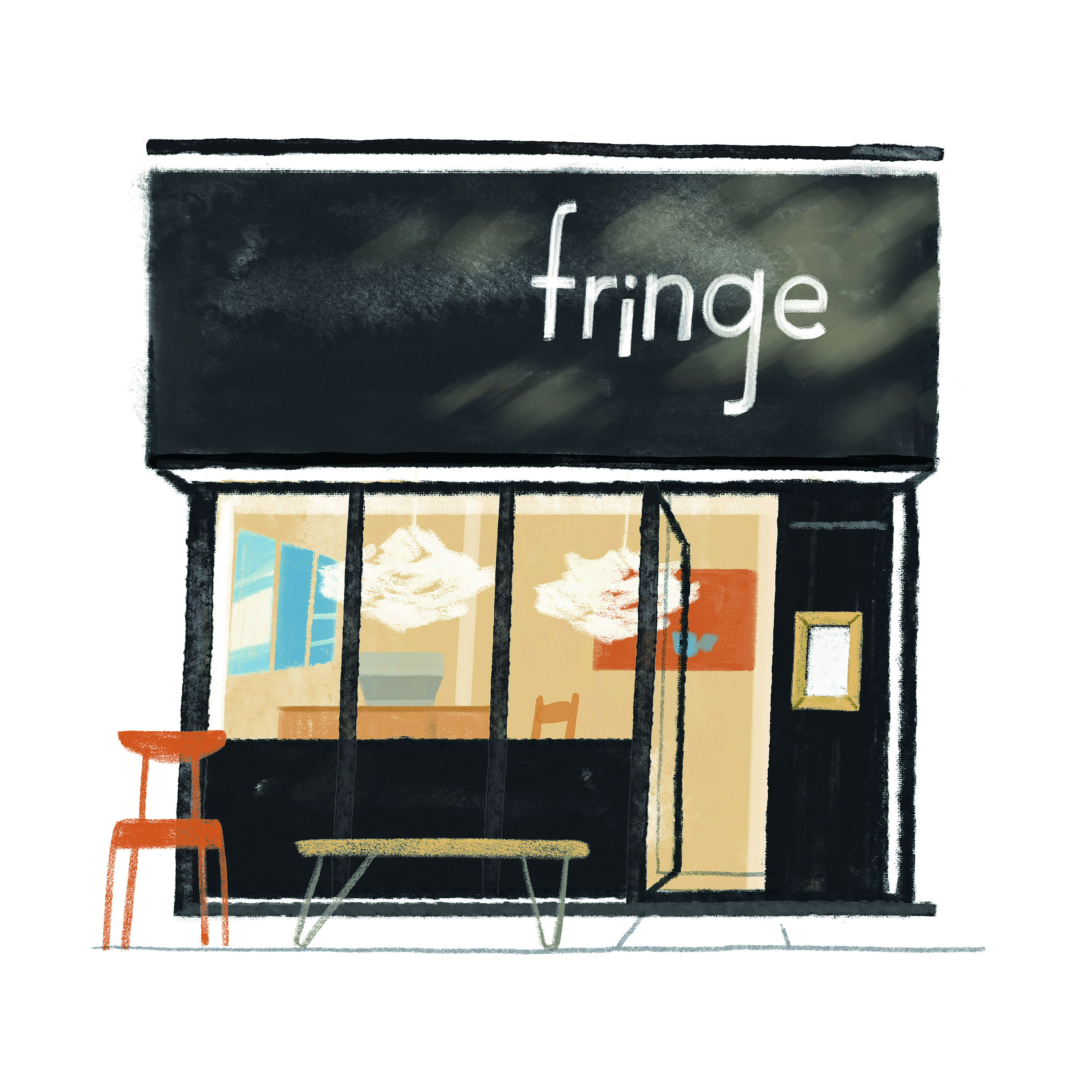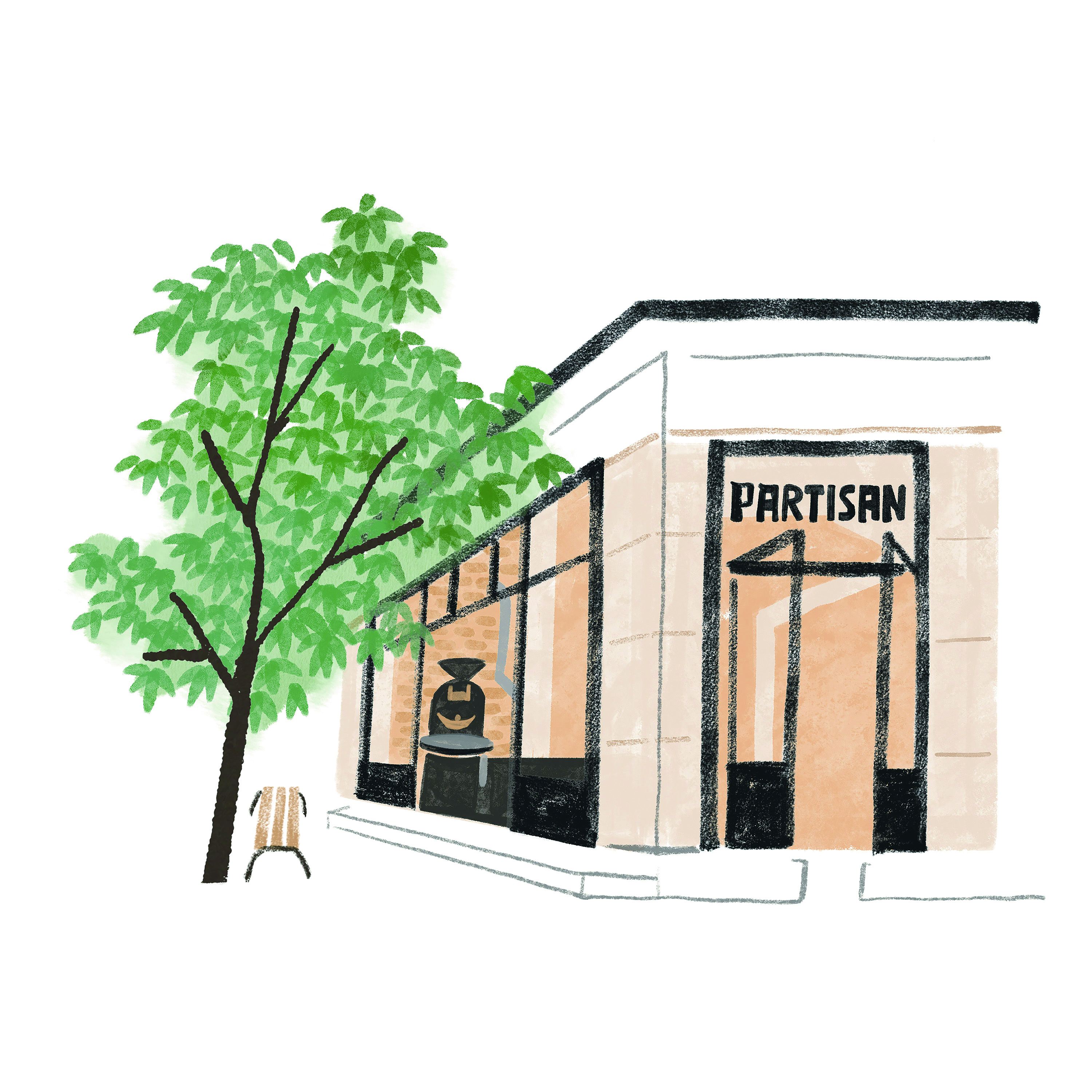The Parisian café scene dates back to the 17th century when Café Procope opened its doors in Saint-Germain des Prés. Large outdoor terraces with small, circular tables and rattan-woven chairs became much more than just a place to enjoy a shot of espresso– they were the hotbeds of intellectual debates and philosophical discussions.
Café conversations shaped French culture and became the heart of Parisian life. In the early 20th century, Les Deux Magots and Café de Flore were made popular by surrealists, existentialists, and other intellectuals, including Jean-Paul Sartre, Pablo Picasso, and Ernest Hemmingway . Cafés were social spaces, though they were more about ambiance than they were about a quality cup of coffee.
It wasn’t until 2005 that the first specialty coffee shop, La Caféothèque, arrived in Paris. Gloria Montenegro, the former Guatemalan ambassador to France, created La Caféothèque to highlight countries of origin. At any given time, you can find coffees from Africa and Latin American, including her native Guatemala.

Specialty coffee was slow to catch on since it wasn’t understood and coffee is so widespread in Paris. Gloria recalls sharing a Guatemalan coffee with an importer in Le Havre who told her, “These coffees are too good for the French.”
This all began to change in 2010 when Café Lomi, Coutume Café, and Telescope opened their doors and fueled a specialty coffee wave in the city. Today, the city is booming with new specialty coffee shops and roasters. The growth is partially because of the demand but also because of the dedicated, passionate coffee professionals in Paris and throughout France.
It’s an exciting time for specialty coffee in Paris, as newcomers are building on the foundation of those who came before them. Artesano is a new coffee shop serving Mexican coffees near the Seine. Recto Verso, White, and The Coffee are all relatively new additions to the Marais. We’ve selected five Parisian specialty coffee shops that show the diversity that exists within the city.
Some have been staples in the Paris coffee scene for years, while others have opened more recently. While it’s hard to say what the future of specialty coffee will look like in Paris, if these coffee shops are any indication, it will be innovative and focused on quality.

Lomi Coffee
Parisian Coffee Legacy
Lomi has been a staple in the Parisian coffee scene since 2010. Founder Aleaume Paturle began working in coffee in 2005, after being inspired by the takeaway coffee model in the United States. He knew coffee-drinking patterns were different in France, with people preferring to sit down with their coffee, so he started Lomi at a time when there weren’t many places serving specialty coffee. Unlike many of the newcomers in the Paris coffee scene, Lomi is spacious with clean stone walls, exposed brick, and an assortment of modern and vintage tables and chairs.
The menu consists of filter coffees and espresso drinks, with an emphasis on the origin. You’ll find scones, granola, and croque monsieurs for petit déjeuner and tartines and salads in the afternoon. Located in the 18th arrondissement, close to the tracks of Gare du Nord, Lomi roasts its coffee onsite and provides education and training at its school next door. Lomi’s growth has occurred steadily over the years. Adding a roaster in 2011 was one of the first developments.
“Lomi needed to master the taste of coffee, to offer different profiles to its customers, and above all, to guarantee the freshness of the beans,” Aleaume says. Along the wall opposite of the counter, you’ll find freshly roasted coffee that is available for purchase. Their commitment to sharing different profiles is evident in the offerings– Ethiopian, Colombian, Brazilian, and others. Aleaume says the wide range of coffees offered is the result of the longstanding relationships they have developed with growers. Having coffee available for consumers to brew at home has become increasingly more important since the pandemic.
“We’re witnessing an interesting phenomenon: consumers prefer to wait until they get home or to the office to drink good coffee,” Aleaume says. Specialty coffee in Paris had a difficult start. Aleaume says that it wasn’t until 2008 that he felt there was a turning point. “In France, we have a hard time adopting new modes of consumption. It takes longer,” he says. Now, there is a market and consumers know what to expect. “Specialty coffee used to be a niche product, but today it’s democratized and consumed in increasingly common places.”

Fringe
Invites You To Dream
At Fringe in the 3rd arrondissement, coffee and photography are carefully curated. Vintage cameras sit alongside bags of coffee and photography books on a display shelf. The lights resemble floating clouds made from what at first glance appears to be wrinkled paper. It’s a creative space, one that invites you to dream a bit over a cup of coffee. Large format photographer Jeff Hargrove founded Fringe in the summer of 2016. He wanted to move away from commercial photography and discovered coffee rather accidentally.
Three years before Fringe opened, Jeff visited a new coffee shop opened in his neighborhood, not knowing what a coffee shop was. “I had just been drinking the espresso available at bistros at the time. That’s all I knew,” he says. “It was like a wow moment. The coffee was not anything I’d ever had before. It was very aromatic with lots of flavors, like an explosion of flavors in my mouth.” Jeff began barista training and found that there were many parallels between coffee and photography. “The kind of photography that I practice is very precise. You think about what you’re doing. You put in all the parameters to get the coffee right. Then you share with your audience. In this case, your customers.”
Fringe honors the craft in photography and in coffee. The coffee shop doubles as a gallery with new photography exhibits going up every two months. In the same way that the photography exhibits change the atmosphere, Jeff sources his coffee from a variety of European roasters. “We have a lot of regulars, and I want them to experience something different. Maybe they can learn something about coffee and their taste while they explore new coffees together with us.”
Though the exhibits and the coffee offerings change, Fringe still maintains the same spirit from when it opened eight years ago. “I wanted a place where we could enjoy good photography and good coffee and create a community with locals. It grew a lot, but it hasn’t changed,” Jeff shares.

Clove Coffee Shop
More Of An Art Form
Tucked away on a quiet street in the bustling Montmartre district, you’ll find Clove Coffee Shop, a relative newcomer to the Paris coffee scene. Partners Florent Marcault and Ella Fatima McElroy had been working together in coffee and decided they wanted to open their own cafe the New Years Eve before Covid hit. This slowed down their plan, but Ella says it gave them time to save and envision what they wanted the space to be. “We really wanted to make a coffee shop that had our own vision and style,” she shares.
Instead of focusing on profit at the detriment of customers, products, and employees, they wanted their approach to be “more of an art form.” You feel this approach as soon as you step into Clove, which opened late 2022. The coffee shop’s aesthetic is minimalistic but warm. The black coffee gear sits atop white countertops that are offset by an exposed brick wall. Wood shelves hold coffee and an array of ceramic cups for purchase. If you look closely at the brick wall, you’ll find small pots displayed in the spaces where the bricks have broken away.
On sunny days, the light streams through the front windows and projects the name of the cafe on the stone columns inside. Florent and Ella’s attention to detail extends beyond the space to the coffee and pastries. Clove sources coffee from Swerl in Sweden, The Picky Chemist in Belgium, and Dak in Amsterdam. They even adopted different water filter systems, so they can adapt the water based on the coffee. Drinks are served in ceramic cups that Ella, a ceramist, crafted for each beverage.
The cups range in size and in colors, from specked off-white to a dark brown with a matte finish. If you’re unable to get a table at Clove, you can take your coffee to go and continue up the hill to take in views of Paris from the steps of The Basilica of Sacré Coeur.

Mardi
An Extension Of Our Home
“Mardi” translates to Tuesday in French, but the name was selected as a homage to the coffee shop’s founders, Margaux Salgado and Adi Salet. Before opening Mardi nearly two years ago, neither Margaux or Adi had ever worked in coffee. Mardi was a passion project. “We spent a lot of time during Covid rethinking our life and how we want to spend it moving forward after the pandemic,” says Margaux. “We were both really passionate about hosting and creating a space that was an extension of our home.”
Located in Village Jourdain, a residential area located between Belleville and Parc des Buttes-Chaumont, Mardi has quickly become the neighborhood hangout, especially with young families. Margaux and Adi live in the neighborhood, so they’ve been able to develop relationships with the regulars. “It was a personal project that developed into a community project,” explains Margaux. They wanted the space, with its large windows and prominent location, for over two years, and then one day it was available. “I think we manifested it,” laughs Margaux. They chose a Scandinavian-inspired look with light wood tables and stools and exposed stone walls.
With the coffee shop’s popularity, they needed a bigger team, but Margaux still focuses on food, while Adi works more with the coffee. They work with roasters in Copenhagen and Amsterdam and create all food in-house. For Adi, it’s an exciting time to be in coffee, especially in Paris. “I think people are more aware about what they’re consuming. There are a lot of coffee shops, and people are becoming more educated and exposed to different types of coffee. The way of consuming coffee is changing,” he says.
“I think we’re at the right moment, at the right time. This whole career change is a big motivation. It pushes us,” says Adi. “It’s very exciting because the industry changes very fast, and the fact that we’ re going this for ourselves is a big drive. We want to be better. We want to learn more, and there’s so many new things,” says Margaux. “It’s exciting to be part of that change, especially in Paris.”

Artisanal Coffee Partisan
Your Best Coffee
Brothers Anthony and Georges Karam opened Partisan in 2018. Anthony had been working in wine since the early 2000s, and Georges had spent 15 years in finance when they decided to do something together. They knew they wanted to work in an artisanal field and considered bread and beer, but ended up choosing coffee after seeing how coffee consumption was changing around the world. “It was still really slow in Paris. There were a few people around in 2015 but nothing like today.
So, at the time, the motivation was to be part of this revolution,” says Georges. They knew that roasting was going to be at the heart of their work, so Georges spent two years training in Copenhagen. It was important that they offer a dark-roasted espresso that would appeal to how the French like to drink coffee but also their fellow Lebanese people, but they also wanted light roasted coffees that allow the terroir and the specific taste profiles of a variety to shine. “We want to please everybody with a variety of products,” says Georges. ” We’re looking for a variety of tastes. There is no best coffee. There is only your best coffee.”
It seems to be a good approach–Partisan is always busy. No matter the time of day, the bench seating in and outside this popular cafe in the Arts-et-Métiers neighborhood is full of people. Inside, concrete walls and floors are accented by exposed brick and stone. The roaster is on display on the main floor of the cafe, emphasizing the important role roasting plays in their work. The cafe’s large windows open to create an indoor/ outdoor effect that is needed during the hot days of summer .
The coffees available at Partisan are linked to harvest. “Producing countries do not harvest and process coffee at the same time, which is fantastic. When Ethiopia and Kenya are harvesting, Brazil is not. So depending on the time of year, you’re going to have fresh coffee from the countries that are harvesting,” says Georges.









NO COMMENT